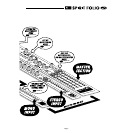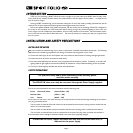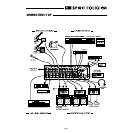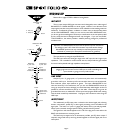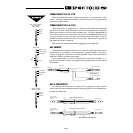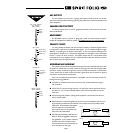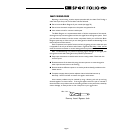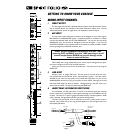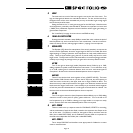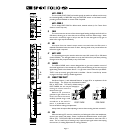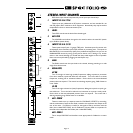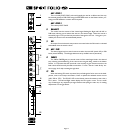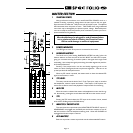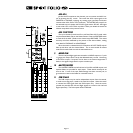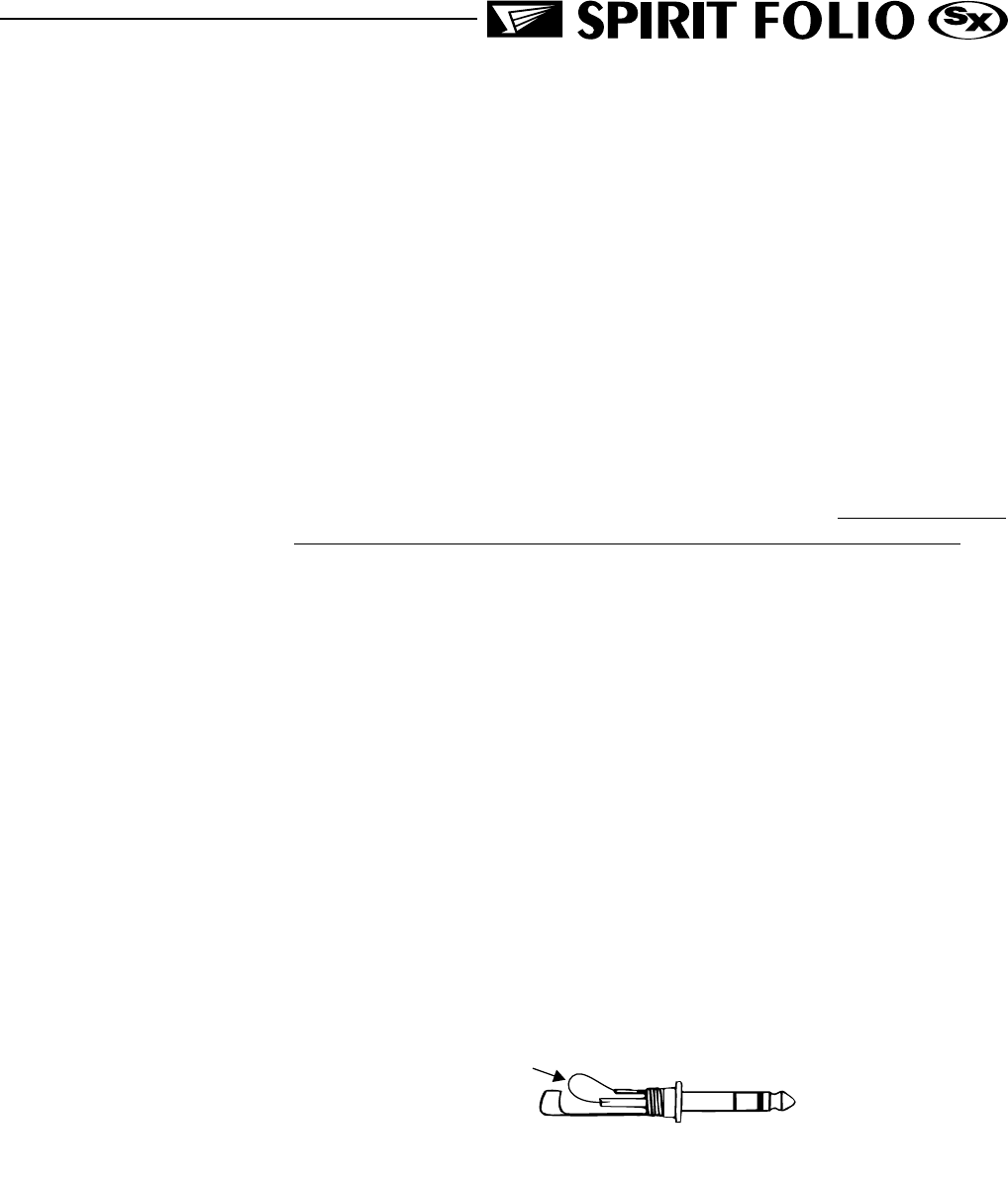
Page 8
Fault Finding Guide
Repairing a sound mixing console requires specialist skills, but basic Fault Finding is
within the scope of any user if a few basic rules are followed.
l Get to know the Block Diagram of your console (see page 29).
l Get to know what each component in the system is supposed to do.
l Learn where to look for common trouble spots.
The Block Diagram is a representative sketch of all the components of the console,
showing how they connect together and how the signal flows through the system. Once
you have become familiar with the various component blocks you will find the Block
Diagram quite easy to follow and you will have gained a valuable understanding of the
internal structure of the console.
Each Component has a specific function and only by getting to know what each part
is supposed to do will you be able to tell if there is a genuine fault! Many `faults are the
result of incorrect connection or control settings which may have been overlooked.
Basic Troubleshooting is a process of applying logical thought to the signal path
through the console and tracking down the problem by elimination.
l Swap input connections to check that the source is really present. Check both Mic
and Line inputs.
l Eliminate sections of the channel by using the insert point to re-route the signal to
other inputs that are known to be working.
l Route channels to different outputs or to auxiliary sends to identify problems on the
Master section.
l Compare a suspect channel with an adjacent channel which has been set up
identically. Use PFL and AFL to monitor the signal in each section.
Insert contact problems may be checked by using a dummy jack with tip and ring
shorted together as shown below. If the signal appears when the jack is inserted it
shows that there is a problem with the normalling contacts on the jack socket, caused by
wear or damage, or often just dirt or dust. Keep a few in your gig tool box.
Dummy Insert Bypass Jack
Wire Link





